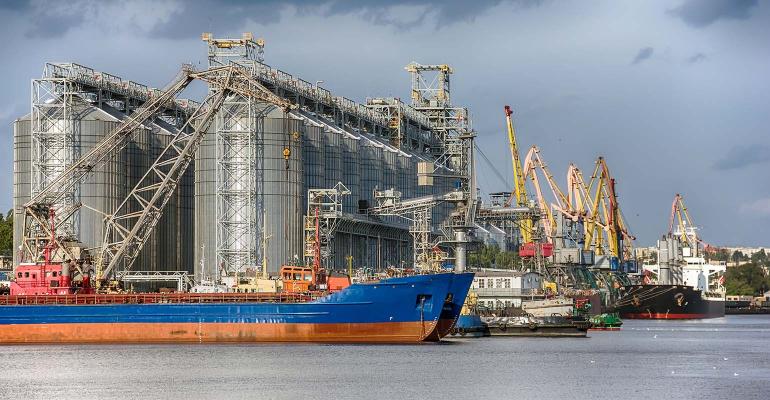Ukraine, a major global producer of agricultural products, has banned exports of fertilizers given...
Ukraine & Russia Agree to Grain/Fertilizer Export Deal

Russia and Ukraine have agreed to export millions of tons of Ukrainian grain and Russian fertilizer through the Black Sea to help avoid a global food crisis.
Nebraska State Senator Tom Brewer, who was in Ukraine, says that reopening grain exports clears the way for significant volumes of food shipments. “The ports are full, the storage facilities at the ports are full and the ships are full. They can’t leave because of the mine fields. They have to cut a swath through the mine fields. They have to get the blessing of the Russians, so they don’t use the navy to sink the ships. Then, they have to bring in these huge container ships to move all of this out.”
UN officials say preliminary shipments could begin soon with exports reaching pre-war levels within weeks.
The two countries signed separate agreements with Turkey and The United Nations helping broker the deal after months of negotiations. UN Secretary General Antonio Guterres says the agreement is a beacon of hope.
The agreement includes:
- A coalition of Turkish, Ukrainian and UN staff to monitor the loading of grain on vessels in Ukrainian ports.
- Ukrainian pilot vessels will guide commercial vessels through mined areas around the coastline.
- Vessels crossing Turkey’s straight into the Black Sea will be monitored by a coordination center in Istanbul.
- Ships entering Ukraine will be inspected under the same coalition to ensure they aren’t carrying weapons.
- The Russians and Ukrainians have agreed to withhold attacks on commercial vessels or ports engaged in exporting grain with UN and Turkish monitors present.
The agreement allowing Ukraine grain shipments to resume is already having an impact on commodity markets. John Heinberg with Total Farm Marketing tells Brownfield Ag Network, “It’s definitely having some impact on that wheat market so that’s part of it, and that’s spilling over into corn. It’s a good day in the bean market. We finally got some reversal action there, but wheat is pushing thirty cents down and hasn’t put a new low in yet but it’s sure trying.” Heinberg thinks there will still be limits on the amount of grain coming out of the Black Sea region.
A Ukrainian farmer says he’s hopeful that the export deal between his country and Russia will allow grain exports to return to pre-war levels. Kees Huizinga told Brownfield Ag Network the agreement only works if the Russians don’t violate it. “I don’t really believe the Russians, or I don’t believe them at all. But if they don’t breach it, then it means a lot to us and to Ukraine and to farming in general.” He says the deal should address current challenges that farmers are facing when they transport grain. “It took us now 3 months now to sell it, 3 or 4 months. We brought a lot to Romania by truck. One round-trip by truck took one week for a distance of like only 400 miles.” He says earlier in the war, the line to cross the border was 20 miles and now it’s around 2 miles.
Editor’s Take:
A lot of folks are hopeful that this agreement between Ukraine and Russia will open the exports of grain and fertilizer. Averting a global food crisis seems to be in everyone’s best interest. Sure, if it works, the agreement could put additional downward pressure on commodity prices here in the U.S. At the same time, increased fertilizer exports will reduce pressure on supplies and help keep those prices from escalating further. Overall, it appears to be a good move that could restore some normalcy to an otherwise uncertain situation for many parts of the world. Commodity prices are still expected to remain well above normal and reductions in input costs will only enhance operating margins. That means farmers/ranchers will have money to purchase trucks! Don’t overlook your best customer prospects!








